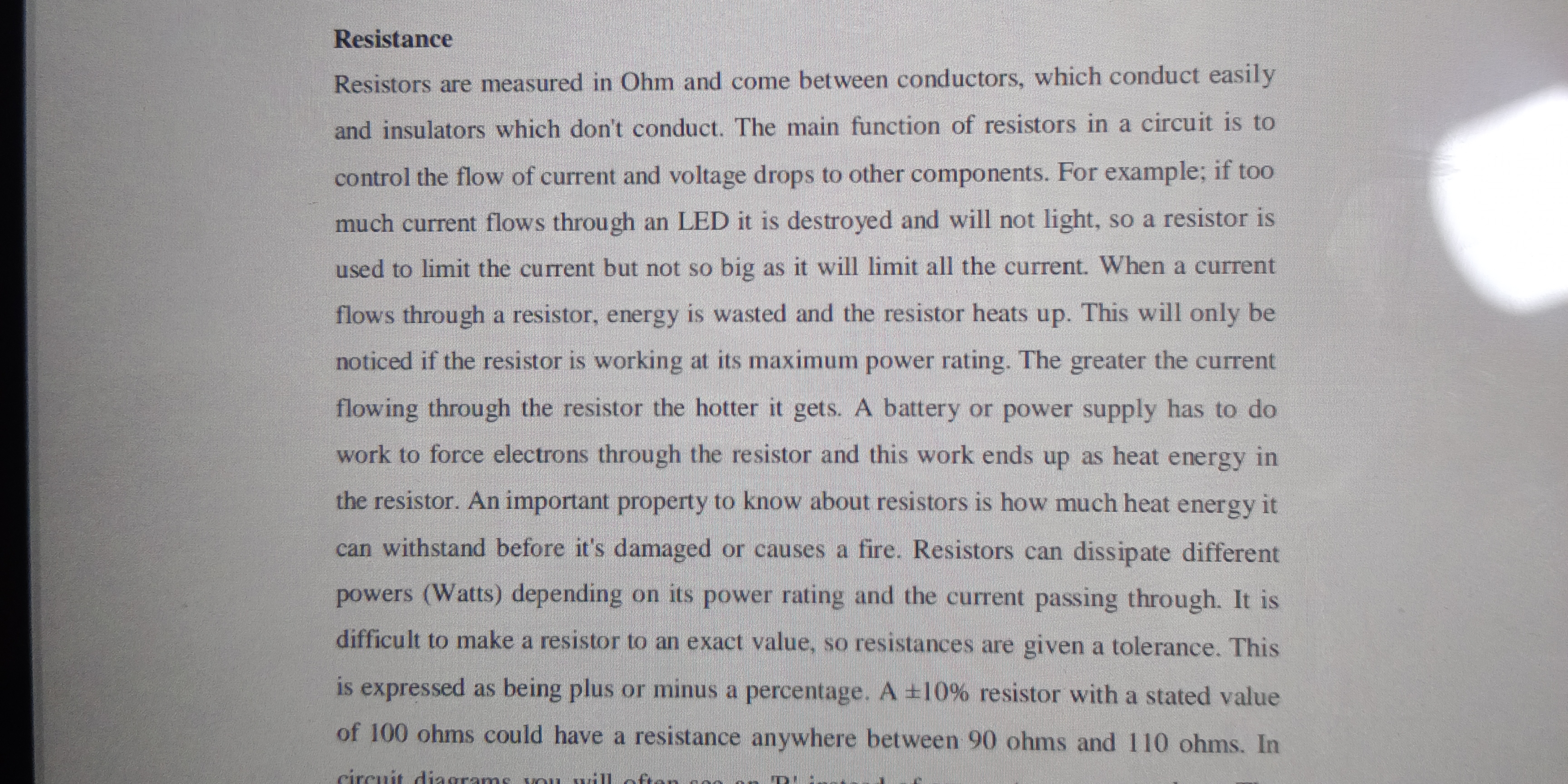What is the function of resistors in electrical circuits?

Understand the Problem
The question pertains to the concept of resistance in electrical circuits, explaining how resistors function, their purpose, and their properties in controlling current and voltage.
Answer
Resistors control current flow and manage voltage drops in circuits.
Resistors in a circuit control the flow of current and manage voltage drops. They protect components like LEDs from excessive current that could cause damage or failure. Resistors dissipate heat energy based on their power rating and have a tolerance that indicates possible resistance variation.
Answer for screen readers
Resistors in a circuit control the flow of current and manage voltage drops. They protect components like LEDs from excessive current that could cause damage or failure. Resistors dissipate heat energy based on their power rating and have a tolerance that indicates possible resistance variation.
More Information
Resistors also help in voltage division and are crucial for the stability of electronic circuits. Their power rating indicates how much heat they can withstand, preventing damage or fire.
Tips
A common mistake is using a resistor with an inadequate power rating, leading to overheating. Always check both resistance and power ratings.
Sources
- Resistor: Functions, Types, Uses, and How to Choose the Right One - cytechsystems.com
- The role of resistors in electrical circuits - Wikiversity - en.wikiversity.org
- What is the role of resistor in electric circuit ? - BYJU'S - byjus.com
AI-generated content may contain errors. Please verify critical information